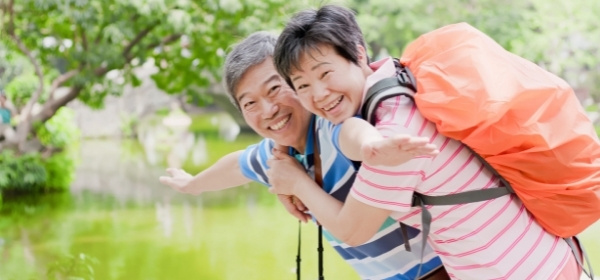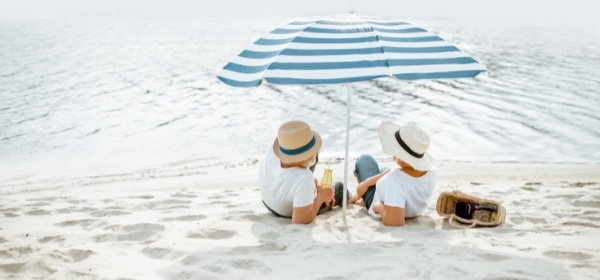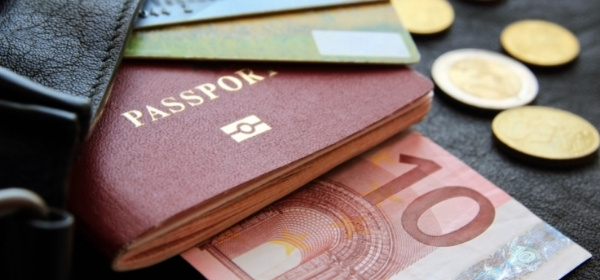Have Health, Will Travel (Part 2)
Now that you’re on your way to your holiday, here are some handy tips to keep in mind during your travels.

There are several ways to make your holiday experience more enjoyable, comfortable and safer.
Older travellers need to exercise some caution when travelling long distances. Rapid changes in temperatures and climate, likely long walking and standing times and the stress of travelling itself can take a toll on your health and wellbeing. However, there are several ways to make the experience more comfortable and safer. DON’T TAKE RISKS Not all activities suit everyone. For example, some activities in a theme park are not recommended for people with heart problems. Understand the health level requirements for each activity before you participate. AVOID SHOPPING TOO MUCH You may have many friends and family waiting to receive heartfelt souvenirs from you. Wisely plan what you want to buy. Avoid increasing the weight of your luggage if you don’t have a suitable method of carrying the bags throughout the trip. TAKE CARE OF YOUR HEALTH AND SAFETY - Avoid itineraries that offer inadequate rest. Instead, allow light activities for the first and second days for your body to adjust to the time change. - Drink lots of water – processed bottled water if safety and cleanliness of the water is a concern. - Avoid uncooked and street food, buffets and unpasteurised milk to avert food poisoning. - Refrain from unsafe sexual activities. Bring along condoms if necessary.

Plan itineraries that offer adequate rest and relaxation between activities.
TIPS FOR STAYING SAFE Criminals often target seniors. Be careful and practice the following: - Avoid exploring any place at night unless you’re in a large group. - Avoid wearing excessive or expensive jewellery. - Keep the Malaysian mission’s contact information handy. - Keep some money hidden elsewhere in case you lose your wallet or purse. - Place money and credit cards in an anti-theft belt or pouch. IF YOU TAKE MEDICATIONS REGULARLY - Remember your medications. While travelling, your usual routine may be interrupted, and you may forget to take your medications. - A medicine box or written/electronic reminders are helpful. - Pay attention to hypoglycaemia if you have diabetes. Carry sweets like chocolate bars and inform the guides or friends about your situation. - Certain medications may be ineffective against recurring diarrhoea. Consult a doctor if you have persistent diarrhoea. - Drink lots of water. Some medicines don’t work if you’re dehydrated. BLOOD CLOTS AND TRAVEL Blood clots (deep vein thrombosis or DVT) can form in the deep veins of your legs during travel if you sit still in a confined space for too long. The longer you’re immobile, the greater the risk of developing a blood clot.

Keep important things like your money, credit cards and passport in an anti-theft belt or pouch.
WAYS TO REDUCE DVT WHEN YOU TRAVEL LONG DISTANCES: - Avoid wearing tight clothing. - Avoid smoking. - Drink more water. - Avoid drinking alcohol. - Take a walk on the flight when possible. - Bend and straighten your ankles periodically while sitting. Avoid crossing your legs. - If you have other risks for DVT, get elastic socks or take heparin injections. Seek your doctor’s advice.
Source: MyHEALTH Portal, Health Ministry Malaysia.
